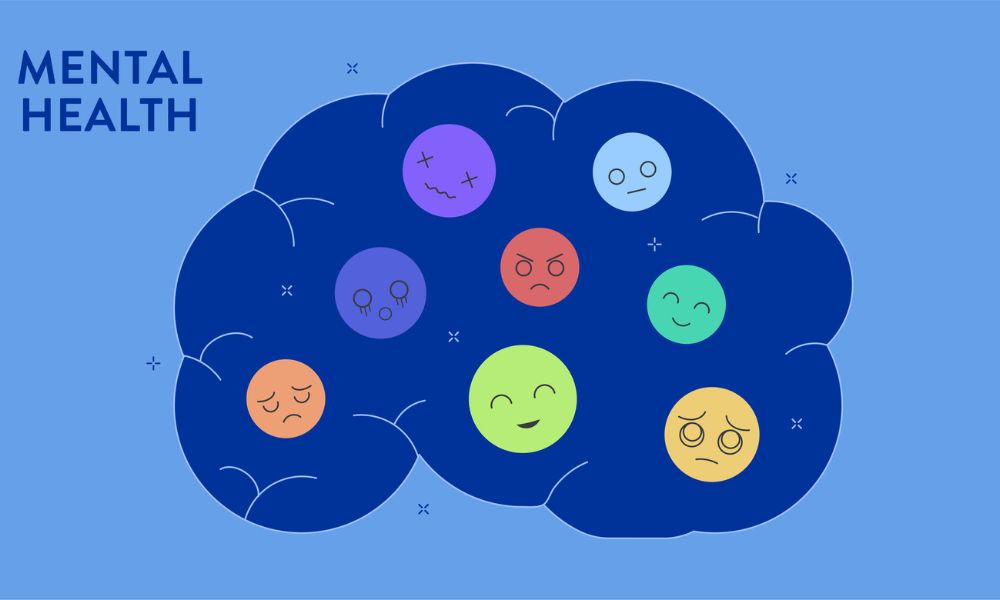Anger is a natural emotion that everyone experiences, but sometimes it can feel overwhelming. Understanding the top causes of anger can help us manage it effectively and improve our overall wellbeing. Whether it's stress from our daily lives, unresolved personal issues, or difficulties in our relationships, recognising these triggers is the first step towards tackling them.

In our journey to better emotional health, it's essential to explore practical coping strategies that can help us respond to anger in healthier ways. From engaging in physical activity to seeking support from others, we can find effective solutions to reduce feelings of anger and frustration.
By understanding what fuels our anger, we take control of our reactions and foster more positive interactions. This article will highlight the ten main causes of anger and offer actionable strategies to help us address and manage these feelings.
Key Takeaways
- Recognising triggers allows us to manage anger better.
- Practical coping strategies can improve our emotional health.
- Healthy communication strengthens our relationships.
Understanding Anger

Anger is a normal and natural emotion that everyone experiences. To effectively manage it, we must explore its definition, types, and what triggers this powerful feeling.
Definition and Types
Anger is a strong emotional response to perceived injustice or frustration. It can manifest in various ways, from mild irritation to explosive rage. Understanding these levels can help us identify our feelings better.
The main types of anger include:
- Passive Anger: This is indirect and can manifest as sarcasm or non-verbal cues. It often stems from unresolved issues.
- Assertive Anger: This is healthy and constructive. It involves expressing our feelings clearly and respectfully.
- Aggressive Anger: This type can be harmful. It is characterised by destructive behaviours and hostility.
Recognising these types can help us respond appropriately in different situations.
Biological and Psychological Triggers
Anger can be caused by various biological and psychological factors. Biological triggers often relate to our body's physiological responses. For example, stress hormones like cortisol can heighten feelings of anger.
Psychological triggers include past experiences, upbringing, and mental health conditions. Issues such as trauma or chronic stress can lead to increased irritability. Each person has unique triggers, making it essential for us to understand our individual responses.
To manage anger, we can benefit from identifying our specific triggers. This awareness allows us to employ strategies to cope more effectively. Simple techniques include deep breathing, physical activity, and open communication with others.
Interpersonal Relationships

Interpersonal relationships play a significant role in our emotional wellbeing. Often, they can lead to feelings of anger when communication falters or expectations go unmet. Identifying specific triggers helps us address the root causes effectively.
Communication Breakdown
Communication is the foundation of any relationship. When it falters, misunderstandings can arise. We may feel unheard or dismissed, which can lead to frustration.
It's essential to express our feelings clearly. When we avoid difficult conversations, resentment can build. Active listening is equally important. By truly hearing what others say, we can respond appropriately and reduce anger.
Using "I" statements can help express feelings without sounding accusatory. For instance, saying "I feel upset when my views are ignored" can open a productive dialogue.
Unmet Expectations
Unmet expectations are a common source of anger. We often assume others understand our needs without clearly communicating them. When these unspoken expectations are not met, disappointment follows.
For example, we might expect our partners to remember special dates or handle responsibilities without reminders. When these expectations go unfulfilled, frustration can grow.
To tackle this, we should have open discussions about our needs and wishes. Setting clear expectations helps everyone understand their roles in the relationship. Regular check-ins can also ensure that everyone is on the same page.
Perceived Injustices
Perceived injustices can lead to significant anger in relationships. We may feel that we are being treated unfairly or that our efforts go unnoticed. This can happen in both personal and professional settings.
When we believe our contributions are overlooked, it can create feelings of resentment. We might think, "Why am I always the one compromising?" This feeling can escalate if not addressed.
To combat this, we need to communicate openly about our perceptions. Sharing feelings of unfair treatment can help resolve misunderstandings. It’s also helpful to acknowledge and appreciate each other’s efforts, which fosters a more positive atmosphere.
Stress and Overwhelm

Stress and feelings of being overwhelmed can significantly contribute to our anger. These emotions often stem from various aspects of our lives, especially work and personal challenges. Identifying the causes is crucial for effective management.
Work-Related Pressure
Many of us face intense pressure at work. Deadlines, high expectations, and heavy workloads can create a stressful environment. We might feel we have too much to do in too little time.
Factors contributing to work-related stress include:
- Unrealistic deadlines
- Lack of support or resources
- Conflicting priorities
These can lead to frustration and anger, especially if we feel undervalued. To tackle this, we can prioritise our tasks. Creating a manageable to-do list helps. Setting realistic goals and discussing concerns with supervisors may also relieve stress.
Lifestyle Challenges
Our daily lives present numerous challenges that can lead to stress and anger. Balancing personal responsibilities, social commitments, and financial issues can feel overwhelming.
Common lifestyle stressors include:
- Family obligations
- Financial pressures
- Health concerns
These factors can cause tension and irritability. We can address these challenges by establishing routines and setting boundaries. Engaging in relaxation techniques, such as deep breathing or physical activity, can help us regain control. Taking short breaks during demanding days is also beneficial.
Personal Issues and Self-Esteem

Personal issues, like a lack of achievement and low confidence, can greatly affect how we manage feelings of anger. These factors often lead to frustration and a sense of powerlessness, which can trigger anger responses.
Lack of Achievement
When we feel we have not reached our goals, it can create a sense of disappointment. This could stem from career aspirations, personal development, or even daily tasks.
Achieving our goals, big or small, boosts our self-esteem. When this doesn’t happen, feelings of inadequacy can arise.
We might perceive others as more successful, sparking feelings of anger or resentment towards ourselves or those we compare ourselves to. Recognising these feelings and addressing our goals can help us channel that energy into motivation instead.
Low Confidence and Self-Worth
Low confidence can lead to feelings of anger, especially in social situations. When we don’t believe in our value, we might react defensively.
For example, if we feel insulted or belittled, our anger might surface as a response to affirm our worth. This can cause conflicts in relationships and further damage our self-esteem.
Building self-worth is essential. We can start by recognising our strengths and achievements. Engaging in positive self-talk and surrounding ourselves with supportive people can foster a healthier self-image. Finding constructive ways to express these emotions is vital in managing our anger related to self-esteem.
Health and Wellness
Our physical and mental health significantly impact how we manage anger. Chronic pain or illness can lead to frustration, while mental health disorders may complicate our emotional responses. Tackling these issues can help in managing anger more effectively.
Chronic Pain or Illness
Chronic pain can be more than just a physical problem; it often affects our mood and emotional state. Living with constant pain can lead to feelings of frustration, irritability, or even hopelessness.
Here are some ways chronic pain impacts anger:
- Increased Frustration: Limitations from pain can provoke feelings of anger at ourselves or the situation.
- Isolation: Chronic pain may force us into social withdrawal, leading to loneliness and resentment.
- Sleep Disturbance: Poor sleep caused by pain can heighten irritability.
Addressing chronic pain through medical treatment, therapy, or physical activity is important. Engaging in stress-relief techniques, like meditation or gentle exercise, can also help us manage our emotional responses better.
Mental Health Disorders
Mental health disorders often play a significant role in how we experience and express anger. Conditions such as depression or anxiety can exacerbate feelings of anger, causing us to react more intensely than we might otherwise.
Key points to consider include:
- Underlying Issues: Many mental health issues involve anger as a symptom. For example, individuals with anxiety disorders may feel heightened anger due to fear.
- Coping Mechanisms: Learning effective coping strategies can help us regulate our responses. Techniques might include cognitive behavioural therapy (CBT) or mindfulness practices.
- Support Systems: Seeking help from mental health professionals is crucial. Support from friends and family can also make a significant difference.
By addressing these mental health challenges, we can reduce their impact on our anger management and enhance our overall well-being.
Environmental Factors
Our surroundings can greatly impact our mood and reactions. Certain environmental factors can trigger or increase feelings of anger. We can look at two key areas: overstimulating surroundings and exposure to negativity.
Overstimulating Surroundings
Living in an environment filled with constant noise, bright lights, or chaotic situations can lead to stress and irritation. For instance, busy urban settings often have loud traffic, construction, and other distractions that can overwhelm our senses.
When we encounter these sensory overloads daily, our frustration levels may rise. This can make us more prone to anger, especially in high-pressure situations.
To tackle this, we can create calmer spaces. Incorporating soft lighting, calming colours, and minimal noise can help reduce our stress. Taking breaks in quieter areas, even for a short time, can also provide relief.
Exposure to Negativity
Our social environment plays a crucial role in shaping our emotions. Being around negative influences, such as toxic relationships or pessimistic people, can breed feelings of anger.
When we are exposed to constant complaining or criticism, it can affect our mood and perception. We might find ourselves feeling angry even when we are not the direct target of negativity.
To combat this, we should assess our social circles. Seeking out supportive and positive friends can foster a healthier emotional environment. Setting boundaries with those who consistently bring us down is essential for maintaining our well-being.
Coping Strategies and Solutions
We can manage anger effectively by using various coping strategies. These approaches include mindfulness practices, cognitive-behavioural methods, communication skills, and problem-solving techniques. Each of these can help us navigate our feelings and respond in healthier ways.
Mindfulness and Relaxation Techniques
Mindfulness involves paying attention to our thoughts and feelings without judgment. By practising mindfulness, we can become more aware of our anger triggers.
Relaxation techniques, such as deep breathing or progressive muscle relaxation, can help calm our bodies. For example, we can take a few deep breaths, inhaling through the nose for a count of four, holding for four, and exhaling through the mouth for a count of four.
Meditation is another powerful tool. It encourages us to sit quietly and focus on our breath. This can create a sense of peace, making it easier to handle anger when it arises.
Cognitive-Behavioural Approaches
Cognitive-behavioural techniques help us change how we think about anger. We often have irrational thoughts that can fuel our anger. By identifying and challenging these thoughts, we can reduce our emotional reactions.
For instance, if we think, "I must be treated fairly," we might feel angry when things don’t go our way. Instead, we can replace that thought with, "I can handle this situation." This shift in thinking helps us stay calm.
Journaling can also be effective. Writing down our thoughts can clarify our emotions and provide insights into triggers. By recognising patterns, we can implement healthier thought processes over time.
Effective Communication Skills
Learning to communicate effectively is key to reducing anger. We can express our feelings calmly and assertively without aggression. This includes using "I" statements, such as "I feel frustrated when...," which focuses on our experience rather than blaming others.
Active listening is another important skill. By giving our full attention to others, we can better understand their perspective. This can prevent misunderstandings that often lead to anger.
Practising empathy can also contribute to effective communication. By trying to see things from another person's point of view, we can foster understanding and reduce tension in conversations.
Problem-Solving Strategies
When anger arises from specific issues, we can benefit from effective problem-solving. First, we identify the problem. What exactly is causing our anger? Once we are clear on this, we can brainstorm potential solutions.
It's helpful to evaluate the pros and cons of each solution. This allows us to choose the best course of action.
Setting realistic goals is also essential. We should focus on what we can control and aim for small, achievable changes. This can help us feel empowered and reduce feelings of helplessness that often accompany anger.
Frequently Asked Questions
We often face many questions surrounding anger and how to manage it. Understanding the triggers, strategies, and support options can help us navigate this complex emotion more effectively.
What are the primary triggers for anger?
Common triggers for anger include stress from work, financial problems, and issues in personal relationships. We might also react strongly to feeling misunderstood or disrespected. Identifying these triggers can help us anticipate and manage our responses.
How can one manage anger effectively in the moment?
In the moment of anger, we can use techniques like deep breathing to help calm ourselves. Taking a step back from the situation allows us to gain perspective. Engaging in physical activity, like walking, can also help release pent-up energy and reduce stress.
What strategies are effective for controlling anger within personal relationships?
In relationships, clear communication is crucial. We can express our feelings without blaming others, which helps prevent escalation. Additionally, setting boundaries can protect against situations that trigger anger, allowing for healthier interactions.
What might be the underlying reasons for feeling anger without an apparent cause?
Sometimes, feelings of anger can stem from unresolved trauma or past experiences we haven't fully processed. Additionally, stress and anxiety can manifest as anger even when we are not directly aware of the source. Reflecting on our emotions can help uncover these hidden issues.
How can one assist someone who is dealing with severe anger issues?
When supporting someone with severe anger issues, it's essential to listen without judgement. Encouraging them to seek professional help can provide the tools they need. We can also suggest healthy outlets for their anger, such as physical activities or creative pursuits.
What approaches can be taken to resolve persistent anger problems?
For persistent anger problems, consistent self-reflection helps us understand our triggers. Seeking counselling can provide guidance and support in managing anger. Practising relaxation techniques and mindfulness also offers long-term strategies for maintaining control over angry feelings.





















